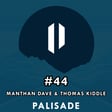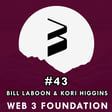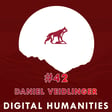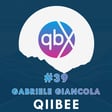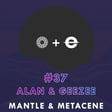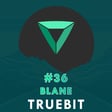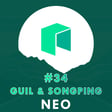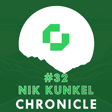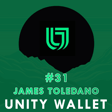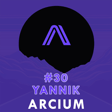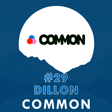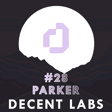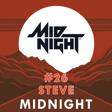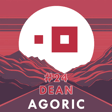
#25 - Crypto Regulation, Polkadot and Kusama with Chrissy HIll
Chrissy Hill is the interim Chief Operating Officer and Chief Legal Officer at Parity Technologies. Parity is the core entity behind the development of Polkadot and Kusma blockchains.
Chrissy’s journey into the world of blockchain and web3 started in her previous role working for former UK Prime Minister Tony Blair. During her decade-long tenure as COO and General Counsel for Blair, she was introduced to the basics of blockchain and web3. This exposure came through the Institute for Global Change, which focused on how technology, including blockchain, could transform digital governance around the world, particularly in developing nations.
In October 2021, Chrissy joined Parity Technologies, attracted by its long-term vision and commitment to regulatory compliance. Her experience in law and compliance made her the perfect fit for navigating the complex regulatory landscape of the blockchain industry.
Parity Technologies and the Polkadot Ecosystem
Parity Technologies is a leading contributor to the Polkadot ecosystem, responsible for maintaining and upgrading the relay chain. The company plays a crucial role in the development and support of Polkadot and its canary network, Kusama. Polkadot is known for its implementation of parachains, which are individual blockchains that run in parallel within the Polkadot ecosystem, enabling scalability and interoperability.
The Web3 Foundation, another significant entity within the Polkadot ecosystem, issued the native token DOT and supports over 600 projects within the Polkadot and Kusama ecosystems.
Challenges in the Blockchain Industry
One of the significant challenges in the blockchain industry, as Chrissy pointed out, is the perception and understanding of the technology by regulators and the public. Chrissy emphasised the importance of making the technology more relatable and understandable to people outside the industry. This involves demystifying the jargon and presenting the technology in a way that highlights its real-world applications and long-term vision.
Polkadot governance and regulatory compliance
Chrissy's background in law and regulation has been instrumental in shaping Parity Technologies' approach to compliance. She discussed the proactive efforts made by Polkadot to engage with regulators worldwide, including in the US, Japan, Switzerland, and the UK. These efforts aim to educate regulators about the technology and advocate for sensible regulations that promote innovation while protecting consumers.
A significant achievement for Polkadot is that its native token, DOT, has not been classified as a security by the US Securities and Exchange Commission (SEC). This is a testament to the careful regulatory approach adopted by the Polkadot ecosystem from the outset.
One of the most anticipated features is the introduction of Snowbridge, a trustless bridge between Polkadot and Ethereum. This bridge will enable ERC-20 token transfers and smart contract calls, fostering greater interoperability between the two ecosystems.
This podcast is fueled by Aesir, the smartest crypto trading bot platform on the market. Sign up and use code AESIRPOT20 at checkout for 20% OFF your subscription.
